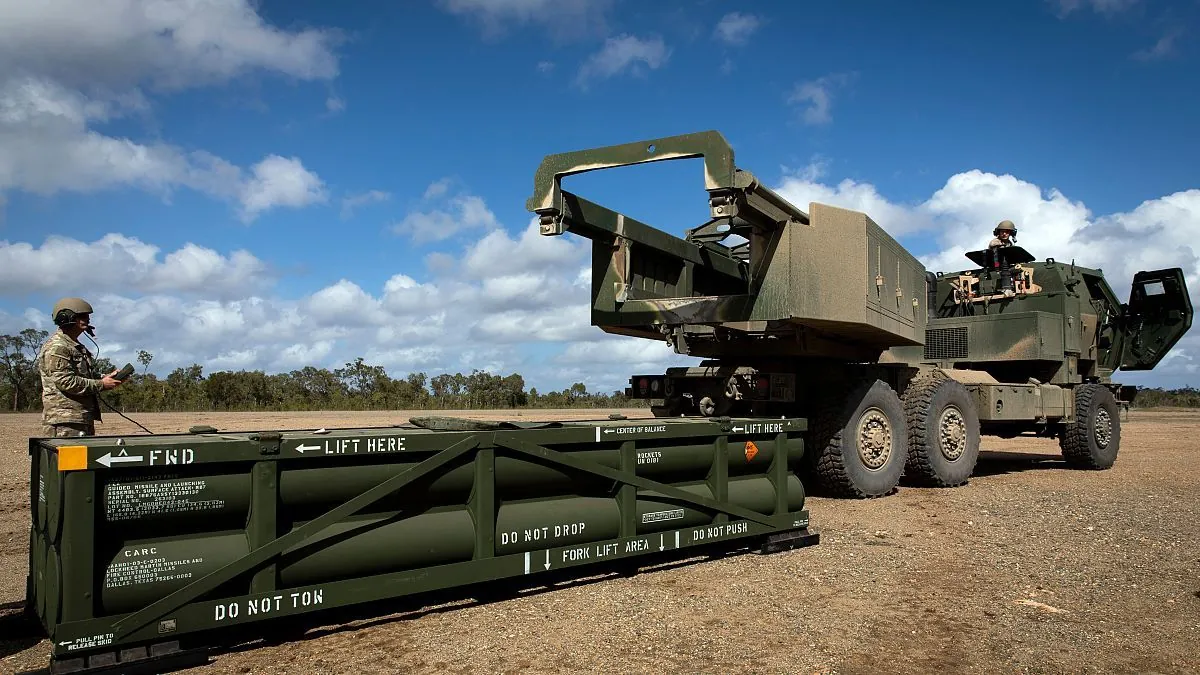Western Allies Poised to Expand Ukraine's Military Options
The US and UK are expected to allow Ukraine to use long-range missiles on Russian soil, potentially shifting the conflict dynamics. This move comes amid Ukraine's ongoing operations in Russia's Kursk region.

The United States and United Kingdom are on the verge of a significant policy shift regarding Ukraine's military capabilities. These Western allies are expected to permit Ukraine to employ US-supplied long-range missiles within Russian territory, a move that could alter the course of the ongoing conflict.
For over a month, Ukraine has maintained a presence in Russia's Kursk region, claiming control of approximately 1,000 square kilometers. This incursion has led to the evacuation of around 150,000 Russian civilians and the redeployment of up to 60,000 Russian troops from Ukrainian front lines, according to Volodymyr Zelensky, Ukraine's president.

Ukraine has also demonstrated its ability to strike deep within Russian territory, conducting widespread drone attacks that have been among the most extensive since the conflict's inception. These operations showcase Ukraine's growing military capabilities and strategic reach.
However, concerns are emerging about Ukraine potentially losing momentum in its fight against Russian forces. Unconfirmed reports from Russian sources suggest a large-scale counter-attack in Kursk, although neither Moscow nor Kyiv has officially confirmed these claims. Meanwhile, Russian forces continue to make incremental advances in the Donbas region, particularly around the city of Pokrovsk.
The pattern of delayed Western support has been a recurring issue throughout the conflict. Over the past two and a half years, Ukraine has repeatedly petitioned its allies for advanced weaponry, including long-range missiles, tanks, and F-16 jets. The hesitancy in providing this support has often left Ukraine at a strategic disadvantage.
Several factors contribute to the West's cautious approach:
- Fear of escalation: Concerns that increased aid might provoke a nuclear response from Russia.
- Waning public support: Diminishing enthusiasm for the conflict in some Western countries.
- Financial considerations: The substantial cost of supporting Ukraine's war effort.
"Ukraine would need hundreds of billions of dollars in Western aid to drive Russian forces off its territory."
This situation highlights the complex geopolitical landscape surrounding the conflict. The Budapest Memorandum of 1994, which provided security assurances to Ukraine in exchange for relinquishing its nuclear arsenal, underscores the international community's responsibility in this crisis.
Despite these challenges, Ukraine's incursion into Kursk demonstrates that Russian threats of nuclear retaliation against attacks on its soil may be overstated. After more than a month of Ukrainian presence in Kursk, no significant escalation from the Kremlin has materialized.
The article argues for a more robust and decisive Western support for Ukraine, suggesting that this approach is necessary to bring the conflict to a swift and just conclusion, ultimately restoring peace in Europe. As the situation evolves, the international community watches closely, with the potential for significant shifts in the conflict's dynamics in the coming days and weeks.


































